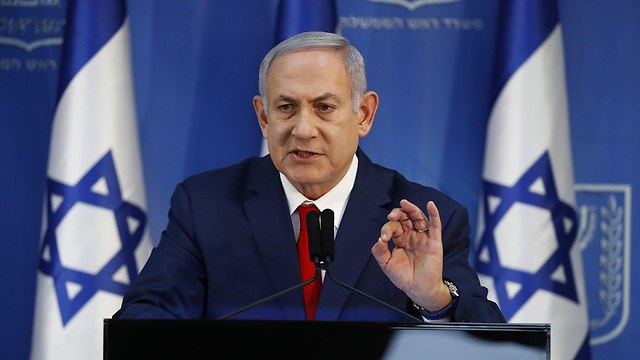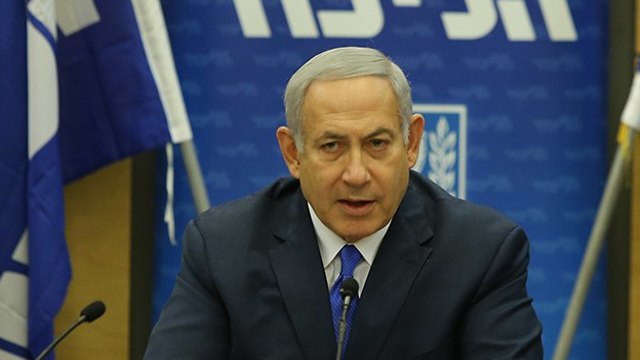The opening of Netanyahu's speech at the press conference Sunday night sounded as if the prime minister was about to announce his resignation. The determination, even the excitement in the Prime Minister's voice, hinted that we were expecting an important announcement.
The moving analysis of how he devoted his life to Israel's security, focusing on momentous events, from his service in the elite Sayeret Matkal unit, his brother Yoni, the wounds and the operations that endangered his life, all seemed to be leading to a far more dramatic statement than the laconic announcement that the prime minister is taking on the role of Minister of Defense.
But hello, this is Netanyahu we are talking about. That he should resign?! And indeed, very quickly it became clear that his entire speech was only a build up for his new portfolio.
It was unnecessary. No one doubts the prime minister's right to serve as defense minister. He is not the first prime minister to do so, and if he intends to transfer the foreign minister portfolio he holds to another minister, there is no reason why he should not serve as defense minister.
It is worth stating that there are also quite a few people who breathed a sigh of relief Sunday night when they learned that Bennett, who only yesterday promised that as defense minister he will turn the ship around and that the IDF will return to be victorious, will not receive the portfolio he set as an ultimatum for his continued tenure in the government.
But it turns out that this is not the only reason Netanyahu delivered the press conference. What we are to hear from this moment on are no less than election campaign speeches, with all the motifs we are familiar with from the prime minister.
First of all, his self-glorification, and this time for the roles he filled with great success as finance minister and foreign minister. According to Netanyahu, all the achievements of the state are due to him, no matter how many years have passed since he was finance minister, and what exactly he did as foreign minister.
From there we move on to fear, a dominant motif for Netanyahu. What was hinted to us over the last week, the prime minister said unequivocally yesterday: We are going to war; and it will happen soon. He said it would involve sacrifice, and that we will overcome our enemies, but without underestimating the challenge before us.
And not only that: Netanyahu wants us to know that he has a clear plan and he knows what to do and when to do it. In a moment he might ask us to take out a pen and paper and record the day and the hour.
And of course, how can he not blame his coalition partners Lieberman, Kahlon, Bennett and Shaked, all those who in such a complex security period are dealing with politics with personal considerations. While he, Netanyahu, makes decisions in a matter-of-fact manner out of deep concern for us.
For a moment, it felt like shouting that someone should turn off the power for this election speech, as they did to Sharon.
What Netanyahu did Sunday is another brilliant exercise by someone who does not take prisoners. He proved once again that when it comes to political spins and maneuvering, he has no competitor.
This is one of the most complex periods we have experienced, he said yesterday, and this is not a time to go to elections. We do not abandon in the middle of an operation. Do not play politics. State security is beyond personal considerations. I told all the leaders of the coalition: Do not topple the government, especially not at this time.
There was only one thing Netanyahu did not say: Why, until two weeks ago, it was he who was looking for a date for early elections.




















